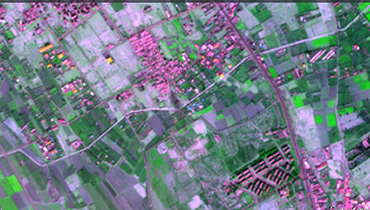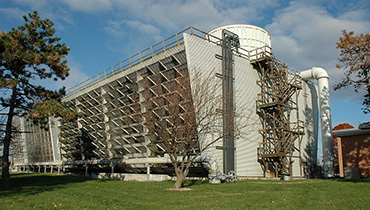2018- Propuesta de un Modelo de Gobernanza basado en Proyectos para una Cooperativa Agroalimentaria. Caso de estudio: Camposeven, España
| Doctorando: | Ana Teresa Herrera Reyes |
| Nacionalidad: | República Dominicana |
| Universidad: | Universidad Politécnica de Madrid |
| Facultad/Escuela: | E.T.S.I. Agronómica, Alimentaria y de Biosistemas |
| Año: | 2018 |
| Calificación: | Sobresaliente Cum Laude |
| Director: | Ignacio de los Ríos Carmenado |
| Enlace: | Texto completo |
ABSTRACT
In a context that approaches the limits of environmental and social problems, and in view of the challenges that the agri-food sector poses today, the need to produce more food, linking environmental sustainability and human health, it is necessary for organizations to integrate strategic initiatives that contribute to achieve sustainability by prioritizing respect for the environment and taking people into account. In that sense, project-based governance constitutes a means for these organizations to turn the new conditions into an opportunity and achieve their strategic objectives. The objective of this thesis is to analyse the governance of an agri-food cooperative constituted by farmers with 40 years of experience and propose, based on the findings obtained, a governance model for this type of organizations to integrate the culture of the projects and project management (PM) in its form of government. To achieve the objective, the knowledge coming from the literature was combined with the experienced knowledge of the participants in a pilot test.
The initial phase of the research addresses the literature review, covering the contextual framework and the theoretical framework. The contextual framework (Chapter 1) includes the literature on the current situation of the agri-food sector at the global level and at the regional (EU) and national (Spain) levels, in order to highlight why it is important to govern by projects and the need to introduce in the business, strategic initiatives that prioritize respect for the environment and people. The theoretical framework (Chapter 2) corresponds to the literature review of the key concepts of the thesis, related to the main lines of research. Which represent the expert knowledge of the study.
The second phase of the research is represented in the methodological framework (Chapter 3), which describes the methodological approach and the design of the research, as well as the procedure carried out during the study. A third phase represents the results; on the one hand, with the proposal of the governance model (Chapter 4), which includes six phases for its implementation. And, on the other hand, the partial application of the model (Chapter 5) to an agro-food cooperative in the southeast of Spain. Finally, the last phase corresponds to the general conclusions (Chapter 6), which include the recommendations, the limitations of the study and the proposal of the future lines of research.
RESUMEN
En un contexto que se aproxima a los límites de los problemas ambientales y sociales, y ante los desafíos que hoy día supone para el sector agroalimentario la necesidad de producir más alimentos vinculando sostenibilidad ambiental y salud humana, se hace necesario que las organizaciones integren iniciativas estratégicas que contribuyan a alcanzar la sostenibilidad priorizando el respeto por el medioambiente y tomando en cuenta a las personas. En ese sentido, la gobernanza basada en proyectos constituye un medio para que dichas organizaciones conviertan en oportunidad las nuevas condiciones y puedan alcanzar sus objetivos estratégicos. El objetivo de esta tesis es analizar la forma en la que se gobierna una cooperativa agroalimentaria con agricultores con 40 años de experiencia y proponer, en base a los hallazgos obtenidos, un modelo de gobernanza para que este tipo de organizaciones integre la cultura de los proyectos y la dirección de proyectos (DP) en su forma de gobierno. Para alcanzar el objetivo se combinó el conocimiento de las principales líneas de investigación: la dirección de proyectos y sus competencias asociadas, y el enfoque del Working With People; con el conocimiento experimentado de los participantes en una prueba piloto.
La fase inicial de la investigación aborda la revisión de literatura, abarcando el marco contextual y el marco teórico. El marco contextual (Capítulo 1), comprende la literatura sobre la situación actual del sector agroalimentario a nivel global y a nivel regional (UE) y nacional (España), con el fin de resaltar el porqué es importante gobernar por proyectos y la necesidad de introducir en el negocio iniciativas estratégicas que prioricen el respeto por el medioambiente y a las personas. El marco teórico (Capítulo 2), se corresponde con la revisión de literatura de los conceptos claves de la tesis, relativos a las principales líneas de investigación. Los cuales representan el conocimiento experto del estudio.
La segunda fase de la investigación está representada en el marco metodológico (Capítulo 3), el cual describe el enfoque metodológico y el diseño de la investigación, así como el procedimiento llevado a cabo durante el estudio. Una tercera fase representa los resultados; por un lado, con la propuesta del modelo de gobernanza (Capítulo 4), que comprende seis fases para su implementación. Y, por otro lado, la aplicación parcial del modelo (Capítulo 5) a una cooperativa agroalimentaria del sureste de España. Finalmente, la última fase se corresponde con las conclusiones generales (Capítulo 6), que incluye las recomendaciones, las limitaciones del estudio y la propuesta de las líneas futuras de investigación.













